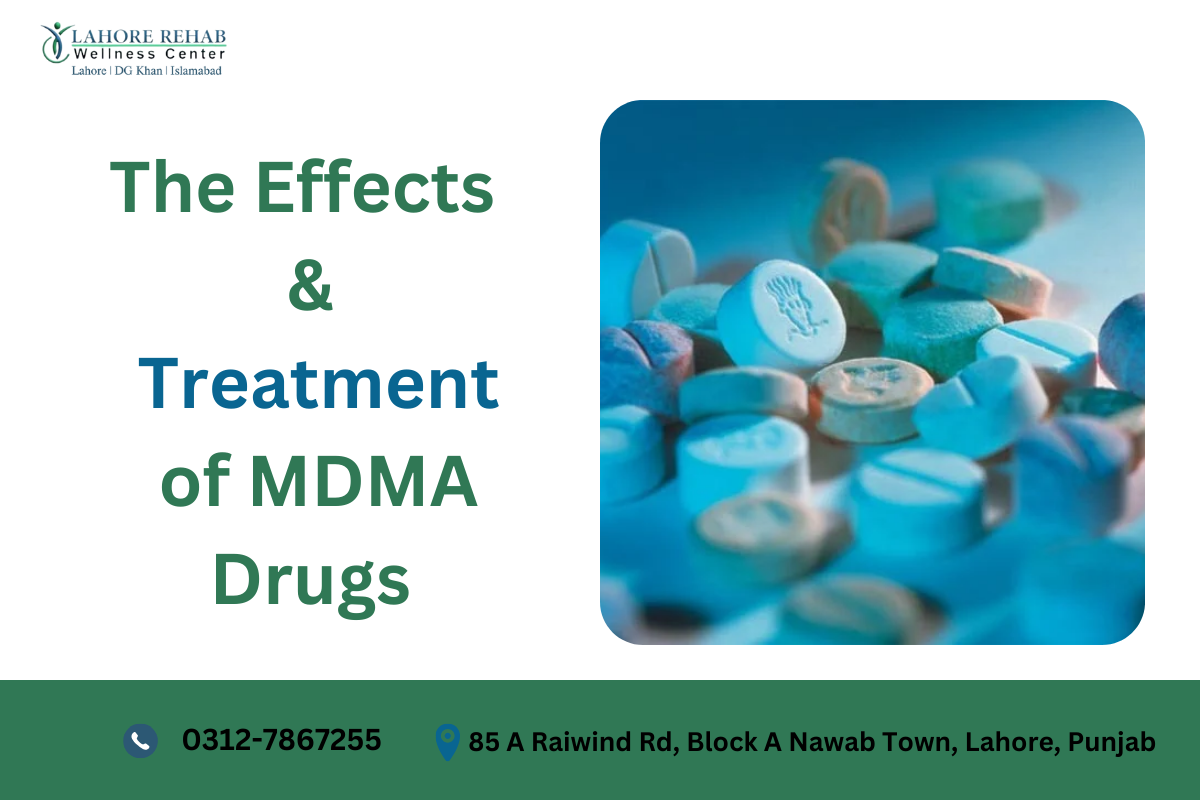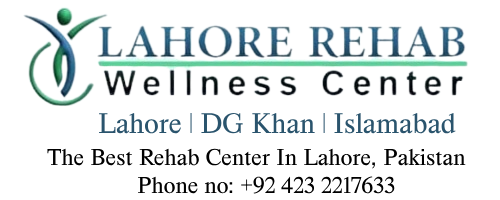
MDMA, commonly known as “Ecstasy” or “Molly,” is a synthetic drug that alters mood and perception. Initially popular in party scenes and raves, MDMA has gained attention for its stimulant and empathogenic properties, making users feel euphoric and emotionally connected. Despite its recreational appeal, MDMA can have dangerous side effects, including addiction, long-term brain changes, and mental health issues. At Lahore Rehab and Wellness Center, we provide comprehensive treatment for individuals struggling with MDMA addiction. Our goal is to offer support, educate patients, and guide them through a structured rehabilitation process that leads to lasting recovery and improved well-being.
MDMA (3,4-methylenedioxymethamphetamine) is a powerful psychoactive drug known for its stimulant and hallucinogenic effects. It primarily affects the brain by increasing the release of serotonin, dopamine, and norepinephrine, resulting in enhanced mood, feelings of euphoria, emotional warmth, and empathy towards others. Often taken in pill or capsule form, MDMA is commonly used in social settings like parties, raves, and music festivals.
While MDMA offers short-term feelings of happiness and connection, it can have serious long-term consequences. Prolonged use of the drug can lead to neurological damage, especially in the serotonin-producing areas of the brain. This damage can result in depression, anxiety, memory loss, and mood disorders. Additionally, users may experience physical side effects such as dehydration, overheating, high blood pressure, and heart problems.
Despite its dangers, MDMA is often perceived as a “party drug,” which has made it widely accessible, especially in younger age groups. The addictive nature of MDMA is often overlooked, but continued use can lead to dependency, both physically and psychologically. Those struggling with MDMA use should seek professional treatment to prevent long-term harm and begin the journey to recovery.
Recognizing the signs of MDMA addiction is crucial for timely intervention and effective treatment. People who abuse MDMA often experience noticeable changes in their behavior, mood, and physical health. Some common signs of MDMA addiction include:
Understanding these signs allows friends, family members, and health professionals to intervene and encourage the individual to seek help, ensuring that they receive the care necessary to overcome the addiction.
At Lahore Rehab and Wellness Center, we understand the complexity of MDMA addiction and the need for a holistic, personalized approach to treatment. Our rehabilitation process incorporates evidence-based therapies, medical intervention, and emotional support to help individuals recover from MDMA dependency.
In addition to CBT, we offer Dialectical Behavior Therapy (DBT), which focuses on emotional regulation and interpersonal skills. This therapy is especially effective for people who experience intense mood swings or emotional dysregulation after MDMA use.
Conclusion
MDMA addiction can have serious consequences on an individual’s physical and mental health, but with the right support, recovery is possible. At Lahore Rehab and Wellness Center, we provide personalized treatment programs designed to address the unique challenges posed by MDMA addiction. From detoxification and behavioral therapy to ongoing support, our holistic approach ensures that each individual receives the care they need to overcome addiction and reclaim their lives. If you or someone you know is struggling with MDMA use, don’t hesitate to reach out to our team for help. Recovery begins with the first step towards seeking assistance.

0312-7867255
0303-7867255
042-32217633
Lahore Rehab Center